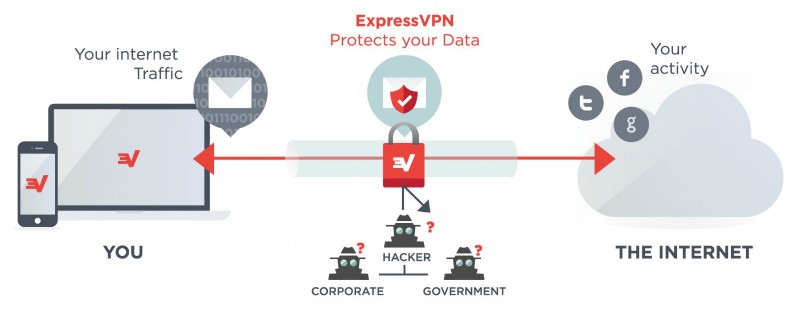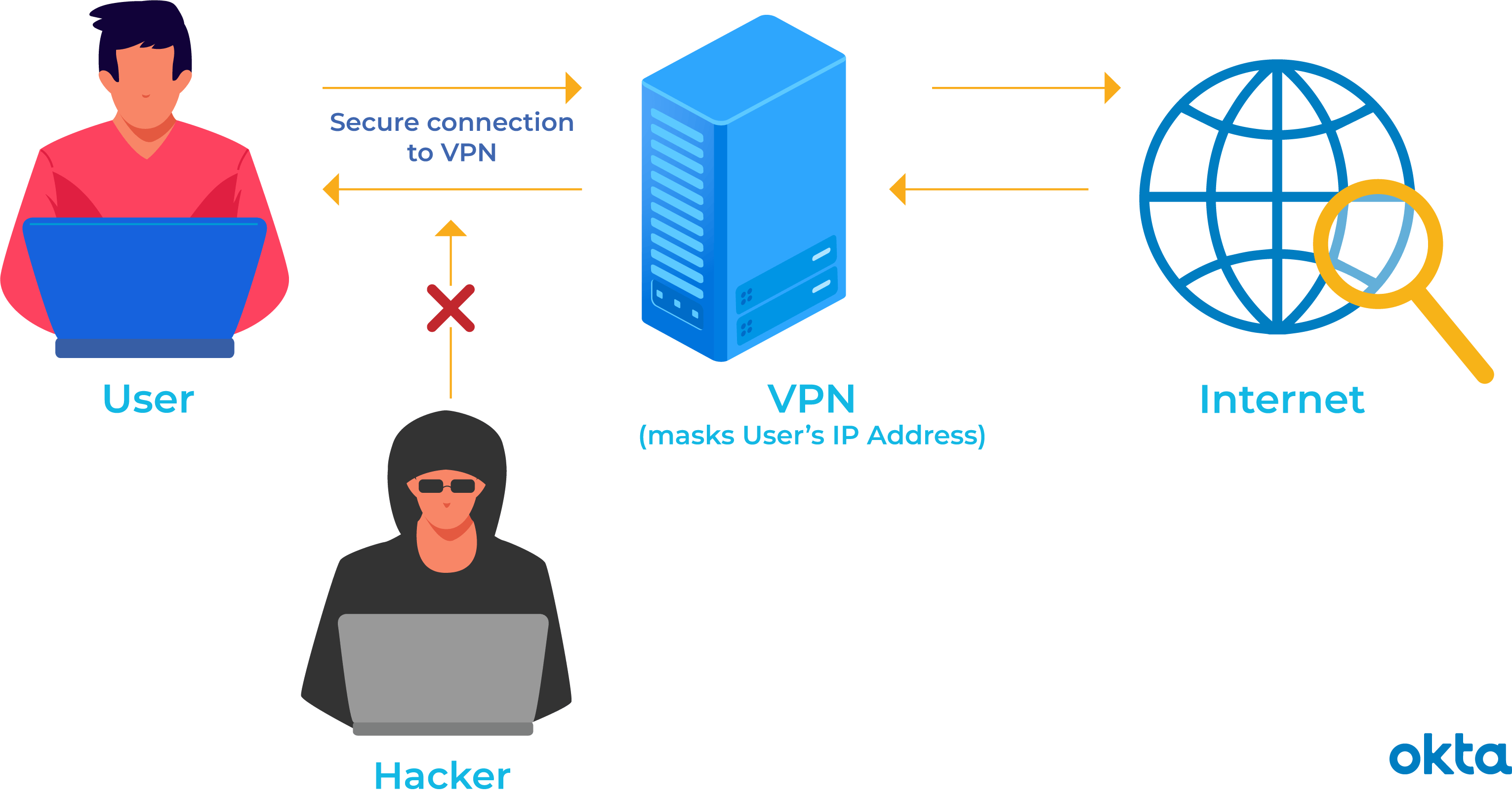Featured
Table of Contents
- – What Is Vpn? Different Types Of Vpns
- – How Does A Vpn Work & How To Use A Vpn - Priva...
- – How Do Vpns Work? Vpn Encryption & Tunneling E...
- – Vpn Faq: What You Need To Know About Virtual ...
- – What Is Corporate Vpn Solution
- – How Does A Vpn Work? Tutorial For Beginners
- – Everything You Need To Know About Vpns For T...
- – What Is Vpn? Virtual Private Networks 101
What Is Vpn? Different Types Of Vpns
In a mobile VPN, the server still sits at the edge of the organization's network, enabling protected tunneled access by verified, authorized clients. Mobile VPN tunnels are not connected to physical IP addresses. Instead, each tunnel is bound to a logical IP address. That logical IP address stays to the mobile phone.
Hardware VPNs provide a number of advantages over software-based VPNs. A hardware VPN is more expensive than a software-based one. Due to the fact that of the expense, hardware VPNs are more practical for larger companies.

Paid supplier alternatives tend to be advised more frequently than complimentary ones. Some VPNvendors, amongst many, consist of the following: contains a strong collection of security functions with a large collection of servers.
How Does A Vpn Work & How To Use A Vpn - Privatevpn
Still, it is usually thought about a great VPN service. It has strong personal privacy and info practices focused on security and uses additional features such as split tunneling.
VPNs are legal in the United States, however users and companies need to examine if they are legal in specific countries. Lots of VPNs use exceptionally similar innovations, so it can be difficult to pick which VPN will work best. Paid VPN services tend to be more relied on and include more security functions.
Around 2017, internet users in the United States discovered that ISPs could collect and offer their searching history, and net neutrality became a principle people needed to defend-- and effectively lost. A bill was gone by the U.S. Legislature in 2019 to restore net neutrality, however was eventually obstructed by the Senate.
How Do Vpns Work? Vpn Encryption & Tunneling Explained
With this knowledge, the usage of VPNs ended up being a more legitimate requirement for people.

A VPN reroutes your traffic through a remote server, securing it at the same time. Usually, when you try to access a site, your ISP (Internet Service Company) gets the demand and reroutes you to your location. When you connect to a VPN, it reroutes your web traffic through a remote server prior to sending it over to your destination.
Several years back, the most common way to connect computers in between multiple offices was by utilizing a rented line. Leased lines, such as ISDN (integrated services digital network, 128 Kbps), are personal network connections that a telecommunications company can lease to its customers.
Vpn Faq: What You Need To Know About Virtual Private ...
These connections form a single wide-area network (WAN) for business. Though rented lines are dependable and safe, the leases are costly, with expenses rising as the distance in between workplaces increases. Today, the web is more accessible than ever in the past, and internet service providers (ISPs) continue to establish faster and more reliable services at lower expenses than leased lines.
Paid VPN services function very much like business VPNs but go through a VPN company to reach the internet, instead of by means of a personal company. These services are incredibly simple to use. All you have to do is download the software application, install it on your device, and link to the server of your option.
First, let's explore an analogy that explains how a VPN compares to other networking alternatives.
What Is Corporate Vpn Solution
All your web traffic is routed through this tunnel to the server, which then sends the traffic off to the general public web as normal. Data coming back to your device makes the very same journey: from the web, to the VPN server, through the encrypted connection, and back to your maker.
There are a couple of choices out there to set up your own, such as Outline. Doing so is fairly simple, but you'll either require to maintain a server or lease one, which is less basic. While there are some efforts to make self-hosted VPNs more available, it's something best delegated tinkerers who aspire to get their hands (digitally) dirty.
If you do not like that a business you're already paying is making money from your data or if you have concerns about ISPs hoarding in-depth information about your activities, a VPN will assist. Not even your ISP can see your web traffic when you use a VPN.VPNs likewise make it harder for marketers and others to track you online.
How Does A Vpn Work? Tutorial For Beginners
When the VPN is active, your real IP address is concealed, and anybody enjoying you can just see the IP address of the VPN server. By concealing your genuine IP address, VPNs reject snoops one tool used to determine and track you online. In spite of that, VPNs do not make you fully anonymous online.

Some VPN services consist of dedicated antivirus tools too, and some anti-viruses business now offer VPNs. We do not usually test the malware-detecting abilities of VPNs, given that we view VPNs mainly as a personal privacy service. To attend to the danger of malware, our company believe standalone anti-malware softwarewhether it's one you buy or the one that ships with your computerdoes a much better job.
A VPN will hide the contents of your web traffic from some observers and can make it harder for you to be tracked online. But a VPN can, at best, supply only minimal security against the risks you're probably to encounter online: malware, social engineering rip-offs, and phishing websites.
Everything You Need To Know About Vpns For Travel In 2023
All your internet traffic is routed through this tunnel to the server, which then sends out the traffic off to the general public internet as typical. Data coming back to your device makes the very same journey: from the internet, to the VPN server, through the encrypted connection, and back to your device.

There are a few choices out there to establish your own, such as Outline. Doing so is relatively straightforward, however you'll either need to maintain a server or lease one, which is less basic. While there are some efforts to make self-hosted VPNs more available, it's something best delegated tinkerers who are eager to get their hands (digitally) dirty.
If you don't like that a company you're currently paying is benefiting from your data or if you have issues about ISPs hoarding in-depth details about your activities, a VPN will help. Not even your ISP can see your web traffic when you use a VPN.VPNs likewise make it harder for advertisers and others to track you online.
What Is Vpn? Virtual Private Networks 101
When the VPN is active, your true IP address is hidden, and anybody viewing you can only see the IP address of the VPN server. By concealing your genuine IP address, VPNs reject snoops one tool used to recognize and track you online. Regardless of that, VPNs do not make you fully confidential online.
Some VPN services consist of committed antivirus tools also, and some anti-viruses business now provide VPNs. We do not usually evaluate the malware-detecting capabilities of VPNs, since we view VPNs mostly as a privacy service. To deal with the hazard of malware, we think standalone anti-malware softwarewhether it's one you purchase or the one that ships with your computerdoes a better task.
A VPN will conceal the contents of your web traffic from some observers and can make it harder for you to be tracked online. A VPN can, at best, provide just limited defense versus the threats you're most likely to encounter on the web: malware, social engineering rip-offs, and phishing websites.
Table of Contents
- – What Is Vpn? Different Types Of Vpns
- – How Does A Vpn Work & How To Use A Vpn - Priva...
- – How Do Vpns Work? Vpn Encryption & Tunneling E...
- – Vpn Faq: What You Need To Know About Virtual ...
- – What Is Corporate Vpn Solution
- – How Does A Vpn Work? Tutorial For Beginners
- – Everything You Need To Know About Vpns For T...
- – What Is Vpn? Virtual Private Networks 101
Latest Posts
The Best Vpns For Small Business In 2023
What Is A Business Vpn? Understand Its Uses And ...
Best Virtual Private Networks Reviews 2023
More
Latest Posts
The Best Vpns For Small Business In 2023
What Is A Business Vpn? Understand Its Uses And ...
Best Virtual Private Networks Reviews 2023